Ghosts of the Sea
Les enfants du large
Virginia Tangvald
2024
| 97 min
Documentary
English, French with English subtitles
Awards and Festivals
TV5 Audience Award for Best French-language film - Feature filmsFestival du nouveau cinéma - FNC, Montreal, Canada (2024)
Official SelectionHot Docs Canadian International Documentary Festival, Toronto, Canada (2025)
Official SelectionVictoria Film Festival, Canada (2025)
Official SelectionFestival cinéma du monde de Sherbrooke, Canada (2025)
Official SelectionFestival du film de l’Outaouais, Canada (2025)
Official SelectionFestival Vues sur mer, Canada (2025)
Official SelectionDocLands Documentary Film Festival, U.S.A (2025)
Official SelectionAtlantic International Film Festival, Halifax, Canada (2025)
Official SelectionCinéfest Sudbury International Film Festival, Canada (2025)
“There are three kinds of people: the living, the dead, and those who go to sea.”
— Aristotle
Born at sea, Virginia was just five when her father, the famous Norwegian adventurer Peter Tangvald, died tragically in a shipwreck. When her elder brother, Thomas, also disappeared mysteriously at sea in 2014, Virginia decided to investigate her origins, which became the documentary Ghosts of the Sea. She explores the archives and memories of those who encountered this atypical family. What she discovers is staggering: two of Peter’s wives died under suspicious and potentially criminal circumstances. More questions arise. In seeking to understand where she comes from and uncover her family’s dark secrets, Virginia has made a compellingly beautiful film that challenges what she believed to be true and calls into question the idyllic image of the sailor in search of absolute freedom. At the end of her courageous journey is the hope that a toxic cycle has been broken.
“There are three kinds of people: the living, the dead, and those who go to sea.”
— Aristotle
Virginia Tangvald was just five years old when her father, a famous Norwegian adventurer, died tragically in a shipwreck. Though born at sea on a sailboat that Peter Tangvald built himself, Virginia had little experience of the open ocean, where life is governed by a different set of rules. Disillusioned by this so-called liberty, her mother brought Virginia back to dry land, ultimately dropping anchor in Montréal. When her elder brother, Thomas, disappeared mysteriously in 2014, also swallowed up by the ocean, Virginia decided to investigate her origins, which became the documentary Ghosts of the Sea.
Virginia’s fascinating quest takes her to Canada, Bonaire, Puerto Rico, France, Andorra, Belgium, and French Guyana. She speaks to people who knew Peter Tangvald and whose insights shed new light on the father she only knew from newspapers and autobiographical accounts. She visits the reefs where he perished, along with his daughter, Virginia’s sister Carmen, in a shipwreck survived only by Thomas. She explores both public and private archives of those who encountered this atypical family. The details of what she discovers are staggering: two of Peter’s wives – the mothers of Thomas and of Carmen – died under suspicious and potentially criminal circumstances. More questions arise. Why did Thomas, marked by his tragic childhood, want to set sail like his father? Is Virginia also governed by a force she can’t control? Does she unknowingly bear the weight of a sinister legacy?
In seeking to understand where she comes from and uncover her family’s dark secrets, Virginia has made a compellingly beautiful film, one that challenges what she had believed to be true and calls into question the idyllic image of the sailor seeking absolute freedom. At the end of her courageous journey, both deeply personal and universal, she finds evidence of what she missed growing up without her father. And the hope that a toxic cycle has been broken.
One-Liner and Two-Liner synopses
One-Liner
Virginia Tangvald’s search for clues about the death of her brother, who was lost at sea, turns into a compelling quest to unravel the dark secrets surrounding her family and her father, famous sailor Peter Tangvald.
Two-Liner
While searching for clues about the death of her brother, who was lost at sea, Virginia Tangvald embarks on a fascinating investigation into her family’s dark secrets. Calling into question the idyllic life of her father, legendary sailor Peter Tangvald, her quest dismantles the myth of absolute freedom and offers the hope that a toxic cycle has been broken.
Interview with Virginia Tangvald
What sparked your desire to examine your family’s history?
The spark was my brother’s disappearance at sea. It seemed like there was a curse hanging over my family, and I felt like it would remain as long as I didn’t get to the heart of the mystery. As the American poet Robert Frost wrote, ‘The best way out is always through.’ I had this sense that by taking ownership of the story, I could thwart the family fate.
The search for identity has its risks, not least of which is the risk of being disappointed. How did you view your father before starting your research, and how did that change during the process?
The mystery surrounding my family history, and therefore the source of my identity, had become so unbearable that I had no choice but to face it. The risk of being disappointed never even crossed my mind. On the other hand, not going forward ran the risk of continuing along this deadly path. It wasn’t so much my view of my father that changed, but my view of freedom. From my father, I inherited a yearning for freedom, for passion, and a sense I was destined for adventure. As a teenager, I was an insomniac because I wanted to live on a sailboat like my father and tap into the freedom that I believed he experienced. My father was a role model. But at the same time, I understood that this freedom led towards death. Being stuck between those irreconcilable messages created a lot of tension in me. In my mind, I was trying to solve the equation between living life to its fullest and death. What changed the most in how I viewed my father after this process was that I realized he and I didn’t have the same definition of freedom, and that he was never free in the way I understood it, so he wasn’t a role model after all. He could sail from port to port, but the map of the world had closed in around him. That brought me a lot of peace, and it made me want to reach out and emerge from my solitude.
Ghosts of the Sea opens and closes with footage of you and your son. What is your sense of your legacy and how you will pass it on?
When I started making the film, I didn’t want children because I subscribed to a vision of freedom that meant I couldn’t have attachments. But after the film, my vision of freedom changed to the point where I had this desire for life that allowed me to have a child. I feel like I’ve taken ownership of the story and neutralized its destructive power. I hope I can convey to my child this idea that he’s destined to have an exciting and meaningful life, but without saddling him with absolutes. I will admit that I don’t buy him toy boats, and I avoid having images of boats in the house.
The film is built around your quest, which we follow in real time, and you often appear on screen. What were the challenges of both being in the film and directing it?
It was really hard because when you’re in front of the camera, obviously you can’t see what’s being filmed. You review each scene with the crew and the cinematographer beforehand, but once you start rolling, it’s a leap of faith. I was fortunate to work with two incredibly talented and sensitive cinematographers who understood my vision. In this case, the film required me to be on camera, but I have no idea what motivates some directors to act in their own films. I’d never do it again.
Your film deals with the notion of freedom and its association with a life at sea. How would you define ‘freedom’ today as it applies to your own life?
Freedom is a feeling. A bird that comes to the window from time to time. You can’t expect to live in a postcard or a video, constantly immersed in that feeling. You can’t catch the bird and put it in a cage and own it. As soon as you find the Holy Grail you think will make you free, your definition of freedom will change, or it will slip from your grasp one way or another. It’s a mysterious, constantly changing beast. And it can turn into a monster that demands constant sacrifice, that requires constant feeding, and that ends up consuming you. Freedom can’t be the ultimate goal. I think it’s best to focus on being a whole person.
Biographies of Thomas Tangvald and Peter Tangvald
Thomas Tangvald
Thomas Tangvald was born in 1976 aboard the L’Artémis de Pytheas, a boat built by his father, Peter. On this same vessel, he witnessed several tragic events that led to the deaths of four family members. Despite this, he was drawn to the sea and adopted his father’s nomadic lifestyle—which some might call freedom—before his own sailboat disappeared off the coast of French Guiana in 2014. His body was never found.
Peter Tangvald
Born in Norway, Peter Tangvald developed a passion for sailing at the age of 16. After working in California for several years, he began a solo Atlantic crossing in 1954 and never left the sea. A famous adventurer and successful author, he was both charismatic and unpredictable, spending his life criss-crossing the oceans on L’Artémis de Pytheas, a sailboat without an engine or radio that he built himself in French Guiana. He married many times and lost two wives at sea before he himself was killed, along with his eight-year-old daughter Carmen, when his ship sank off Bonaire in the Antilles in 1991.
Trailer
Excerpts
Excerpt 1 - Questions of freedom
Excerpt 2 -Haunted by ghosts
Excerpt 3 - Uncovering a family's dark secrets
Poster
Images
Loading...
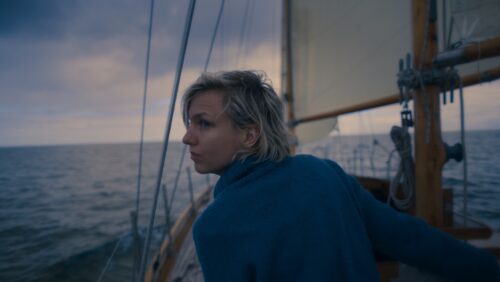
Download
Loading...

Download
Loading...
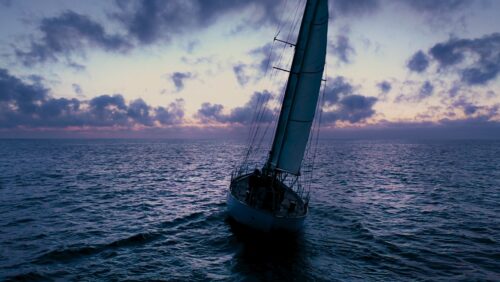
Download
Loading...
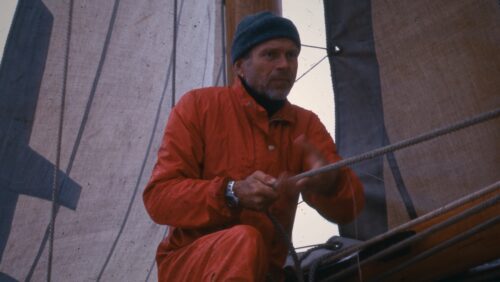
Download
Loading...
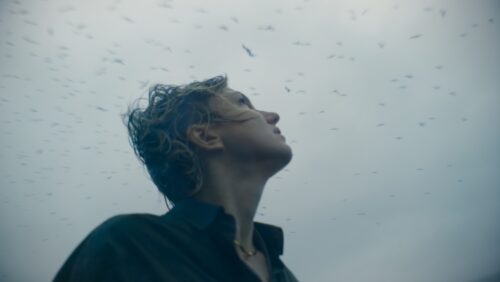
Download
Loading...
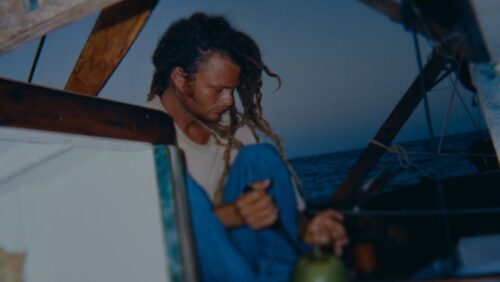
Download
Loading...
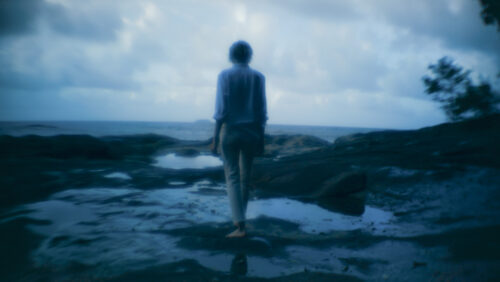
Download
Loading...
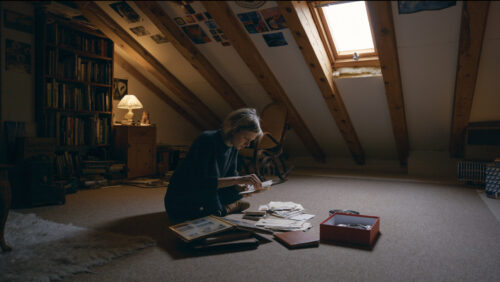
Download
Loading...
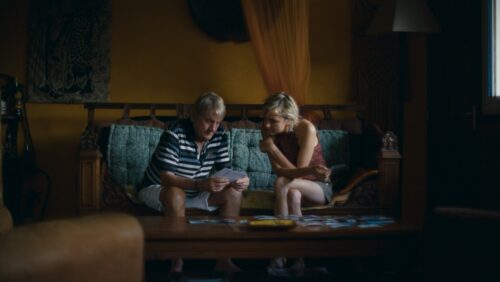
Download
Loading...
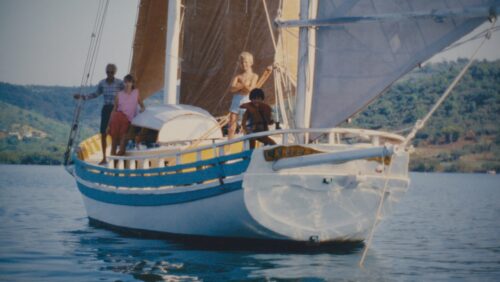
Download
Loading...
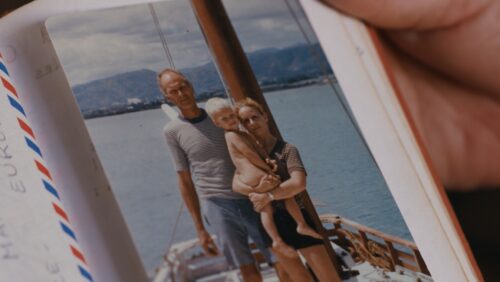
Download
Loading...
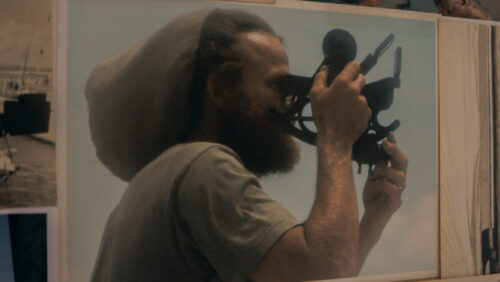
Download
Loading...

Download
Loading...
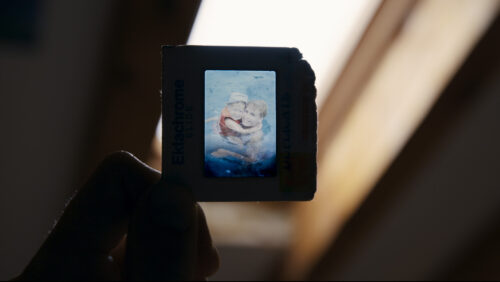
Download
Loading...
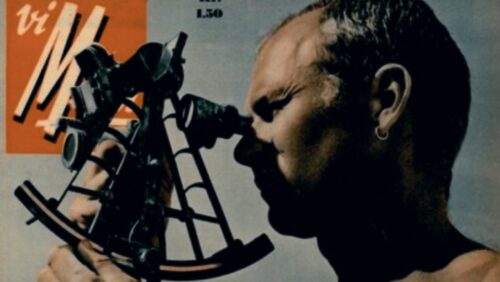
Download
Loading...
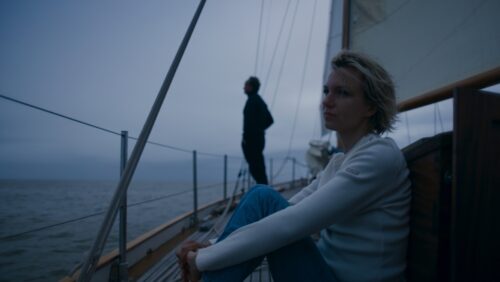
Download
Team
Virginia Tangvald
Filmmaker
Photo
Photo : Justine Latour
Isabelle Couture
Producer, micro_scope
Photo
Photo : Julie Artacho
Élaine Hébert
Producer, micro_scope
Photo
Photo : Danny Taillon
Nathalie Cloutier
Producer, NFB
Photo
Photo : Valérie Sangin
Frédéric Corvez
President and Founder, Urban Factory
Photo
Maéva Savinien
Producer, Urban Factory
Photo
Luc Déry
Executive Producer, micro_scope
Photo
Photo : Caroline Hayeur
Kim McCraw
Executive Producer, micro_scope
Photo
Photo : Caroline Hayeur
Credits
RESERVOIR DOCS and the NATIONAL FILM BOARD OF CANADA present
a Canada-France co-production produced by
MICRO_SCOPE with the NFB and URBAN FACTORY
GHOSTS OF THE SEA
A film by
VIRGINIA TANGVALD
Editing
ELRIC ROBICHON
With the collaboration of
MARIE-PIER DUPUIS
Cinematography
GLAUCO BERMUDEZ
ETIENNE ROUSSY
Sound Recording
CAMILLE LIMOUSIN
Sound Design and Mix
PHILIPPE GRIVEL
Original Score
RÉMI BOUBAL
Produced by
ISABELLE COUTURE
ÉLAINE HÉBERT and
NATHALIE CLOUTIER (NFB)
Co-produced by
FRÉDÉRIC CORVEZ
MAÉVA SAVINIEN
Executive Producers
LUC DÉRY
KIM McCRAW
Written and Directed by
VIRGINIA TANGVALD



This film is a Canada-France co-production produced with the financial participation of Eurimages, SODEC, Quebec Tax Credit, Telefilm Canada, Rogers Documentary Fund, MELS Fund, Canada Tax Credit, CNC, Hot Docs Ted Rogers Fund, CALQ and SACEM, in collaboration with VRAI. The film also received support from the Gotham Film & Media Institute and the Best Pitch Award at the FNC Forum 2020.
Media Relations
Sales and Distribution
Nathalie Bourdon (NFB)
Director – Distribution & Market Development
C. : 514-995-0095
n.bourdon@nfb.ca
International Sales: Reservoir Docs
-
About the NFB
For more than 80 years, the National Film Board of Canada (NFB) has produced, distributed and preserved those stories, which now form a vast audiovisual collection—an important part of our cultural heritage that represents all Canadians.
To tell these stories, the NFB works with filmmakers of all ages and backgrounds, from across the country. It harnesses their creativity to produce relevant and groundbreaking content for curious, engaged and diverse audiences. The NFB also collaborates with industry experts to foster innovation in every aspect of storytelling, from formats to distribution models.
Every year, another 50 or so powerful new animated and documentary films are added to the NFB’s extensive collection of more than 14,000 titles, half of which are available to watch for free on nfb.ca.
Through its mandate, its stature and its productions, the NFB contributes to Canada’s cultural identity and is helping to build the Canada of tomorrow.
-
About micro_scope
micro_scope is one of the most important film production companies in Canada.
Founded in 2002, the company mainly focuses on the development and production of innovative and accessible feature films. Led by producers Luc Déry and Kim McCraw, micro_scope strives to make sure each of the company’s films reaches its full potential. micro_scope has produced over 15 features that have distinguished themselves in many international festivals, notably in Cannes, Venise, Berlin, Locarno, Sundance and Toronto. Among those, Incendies (Denis Villeneuve) and Monsieur Lazhar (Philippe Falardeau) have been nominated for an Academy Award as Best International Film.
Other highlights include Shepherds (Bergers) by Sophie Deraspe, Drunken Birds (Les oiseaux ivres) by Ivan Grbovic, Endorphine by André Turpin, My Salinger Year, My Internship in Canada (Guibord s’en-va-t-en guerre), It’s not me, I swear (C’est pas moi, je le jure) and Congorama by Philippe Falardeau, Viking, Tu dors Nicole (You’re sleeping Nicole), En terrains connus (Familiar Grounds) and Continental, a film without guns (Continental, un film sans fusil) by Stéphane Lafleur, Enemy by Denis Villeneuve, Gabrielle and Familia by Louise Archambault, Inch’Allah by Anaïs Barbeau-Lavalette, Whitewash by Emanuel Hoss-Demarais, Allure by brothers Carlos and Jason Sanchez, and For Those Who Don’t Read Me (À tous ceux qui ne me lisent pas) by Yan Giroux.
micro_scope has also produced the documentary feature All That We Make (Fermières) directed by Annie St-Pierre as well as the short films Go Play Outside (Va jouer dehors) directed by Adib Alkhalidey, The Swimming Lesson (Le cours de natation) directed by visual artist Olivia Boudreau, La ronde directed by Sophie Goyette, Life Begins (La vie commence) et The Refuge (Les réfugiés) directed by Émile Proulx-Cloutier.
-
About Urban Factory
Established in 2011, Urban Factory produces films by talented directors from around the world, without constraints of genre or budget.
Among our recent releases:
The Shameless by Konstantin Bojanov, a co-production between France, Bulgaria, Switzerland, Taiwan, and India, which had its world premiere at the 2024 Cannes Film Festival (Un Certain Regard, UCR Award for Best Actress for Anasuya Sengupta).
If Only I Could Hibernate by Zoljargal Purevdash, a co-production between France and Mongolia, had its world premiere at the 2023 Cannes Film Festival (Un Certain Regard).
Plan 75 by Chie Hayakawa, a co-production between Japan, France, and the Philippines, had its world premiere at the 2022 Cannes Film Festival (Un Certain Regard, Caméra d’Or Special Mention).
Our catalog also includes Good Manners by Juliana Rojas and Marco Dutra (2017), a Brazilian genre film, Une part d’ombre by Belgian director Samuel Tilman (2018), Mobile-Home by François Pirot (2012), Incident Light by Ariel Rotter (2015), El Mundo by Daniel & Diego Vega (2013), Once Upon a Time Was I, Veronica by Marcelo Gomes (2012), Invisible by Pablo Giorgelli (2017), as well as the documentaries Il nous reste la colère by Jamila Jendari and Nicolas Beirnaert (2022), and Francesca i l’amor by Alba Sotorra…
We have just completed production of the documentary Ghosts of the Sea by Virginia Tangvald, co-produced with micro_scope and the National Film Board of Canada, as well as Sima’s Song by Roya Sadat. We currently have three feature films in development: My Traitor by Santiago Amigorena, co-written with Marion Quantin, an adaptation of the novels “My Traitor” and “Return to Killybegs” by Sorj Chalandon, Let Us Not Be Strangers by Julien Trauman, co-written with Sebastian Echegorri, and the partially animated documentary Dream of Grape Gardens by Sahra Mani.